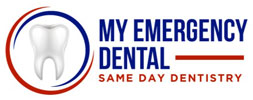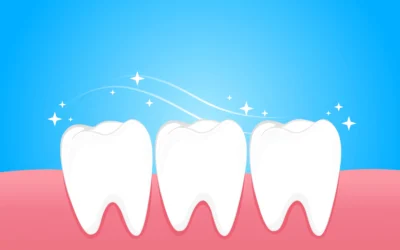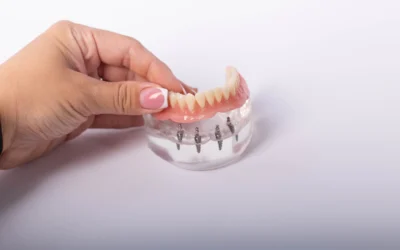People have mixed reactions to going to the dentist. Some people enjoy that squeaky clean feeling after their semi-annual visit. Others feel nervous at the thought of sitting in that dentist’s chair. Going to the dentist does not have to be an anxiety-inducing experience. Routine dental care is important and shouldn’t be skipped. If visiting the dentist makes you nervous, it may be time to find a dentist who specializes in helping each patient feel comfortable during their visit.
Here are some reasons why you are better off making regular, preventative visits to the dentist than waiting until you have a problem.
Preventative Care Treatments
First off, what is considered preventative care? Dentists and their assistants can perform several services to keep your smile healthy and bright, including:
- Deep cleaning and polishing
- Tartar removal
- Checking for cavities, cracks, enamel erosion, or soft spots in the enamel
- X-ray for damage beneath the surface
- Flouride Treatments
- Sealants
Prevents Serious Infections
You may not think teeth significantly impact your overall health, but it’s true. Infections in your teeth and gums can spread throughout your body. If left untreated, infections in the teeth and gums can spread to the jaw bone and the brain, causing cognitive dysfunction, or the bloodstream, lowering your immune system, and making you vulnerable to other diseases. Dental disease is also linked to heart problems, lung disease, diabetes, and cancer.
Costs Less
Even with excellent oral hygiene habits at home, you will struggle to stay ahead of the bacteria that thrive on the food you eat. Enlisting the help of your dentist and hygienist to remove stubborn tartar and address infections as they develop can eliminate the need for more costly procedures down the road, including emergency tooth extractions and root canals.
Most dental insurance provides coverage for routine dental services, such as X-rays and cleanings. If these exams turn up a small cavity, filling it now will cost you much less than having it pulled on the weekend if the infection gets worse. For every dollar you spend on preventative care, you’re saving, on average, eight to fifty dollars in future dental bills for preventing otherwise avoidable damage.
Catches Conditions Early
In addition to evaluating your mouth for signs of tooth decay or gum disease, your dentist can watch for signs of other more serious conditions, such as cancers of the mouth or throat, osteoporosis, and HIV. Identifying these health conditions early can give you an advantage in treating them and living a longer, healthier life.
Protects Against Cavities
Our teeth put up with a lot of abuse. From chewing sticky foods and crunching on hard candies to drinking acidic sodas and clenching our teeth at night. The enamel coating that naturally protects your teeth takes a beating and may not be enough to protect your teeth, especially in the cracks and crevices where bacteria like to live. Sealants are a great way to protect young teeth from developing cavities. A thin layer painted on the chewing surface of the tooth, sealants add another layer of protection against infection and greatly reduce a child’s likelihood of developing a cavity.
Preventive Care Starts at Home
The first step to healthy teeth and gums is a consistent home regimen.
- Floss – When food hides in the cracks between teeth for long periods, the food will rot, causing bad breath. It’s a breeding ground for bacteria that could lead to the breakdown of tooth enamel and soft tissue damage. If left untreated, these infections can become septic, spreading infection through the blood to other body parts. And it may cause so much damage the only way to treat it is to remove the teeth entirely.
- Swish – If you do end up with sore gums, floss and swish with warm salty water for several days. This warm rise will keep your gums free of debris and bacteria and allow them time to heal.
- Brush – Brush your teeth twice daily for two minutes with fluoride toothpaste to harden enamel. Don’t forget your gums, behind-the-back molars, and your tongue for fresher breath and a healthier mouth.
- Treat – Clean small sores in your mouth from biting your cheek or similar injuries by gargling with warm salty water several times a day to prevent infection and speed healing.
- Rinse – Since the bacteria in your mouth feeds on sugar, it’s a good idea to rinse your mouth after eating or drinking anything sweet. Drinking water throughout the day is a great way to keep your mouth clean and healthy.
- Visit the Dentist – Schedule an appointment with your preventive care dentist. No matter how long it has been since your last visit, they will be glad you came.
With a routine preventive care appointment every six months, your teeth will continue to serve your needs for a lifetime, brighten your smile, and give you the confidence to face the world on your terms.



